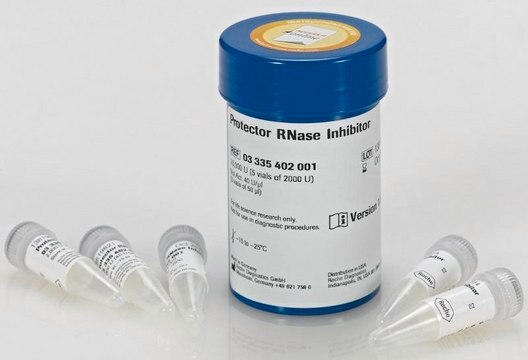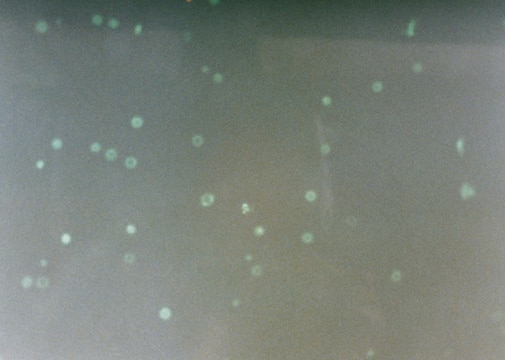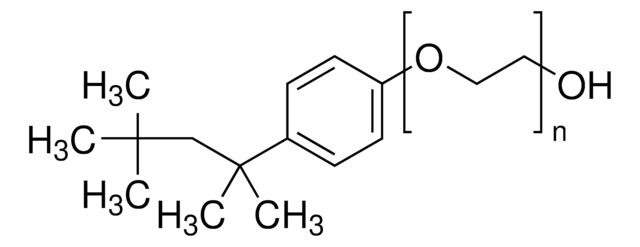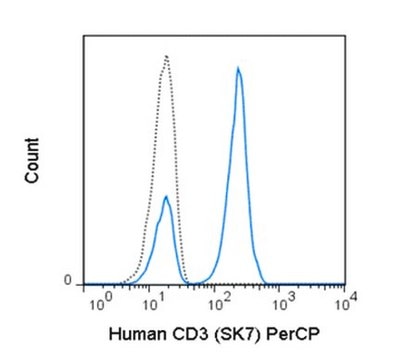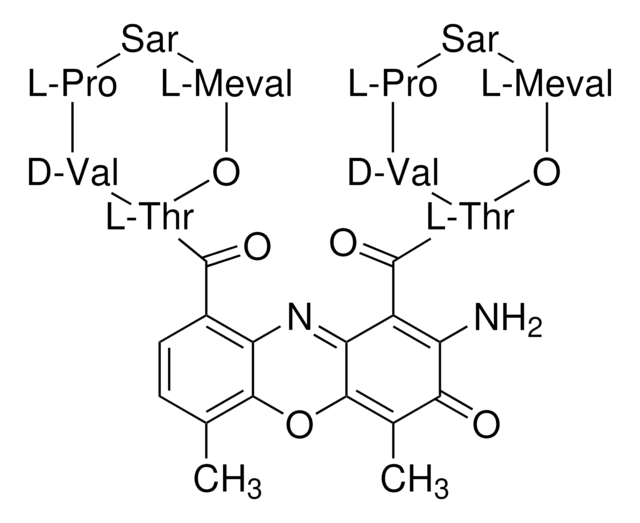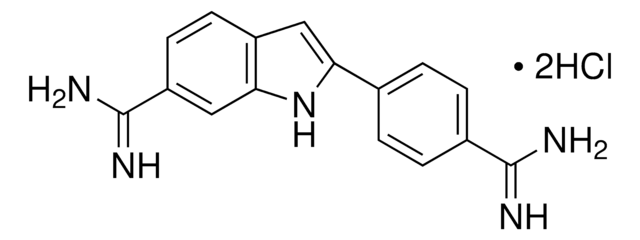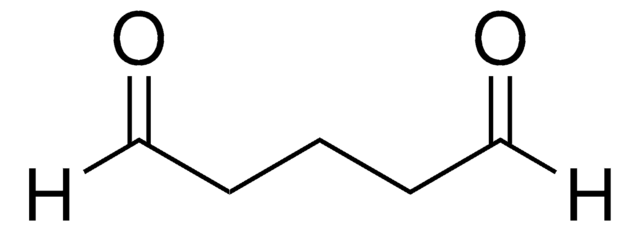SML1633
7-AAD Ready Made Solution
1 mg/mL
Synonym(s):
7-Aminoactinomycin D Ready Made Solution, 7-Aminodactinomycin Ready Made Solution
About This Item
Recommended Products
form
liquid (solution in DMSO:H2O (1:1))
Quality Level
storage condition
protect from light
concentration
1 mg/mL
storage temp.
−20°C
InChI
1S/C62H87N13O16/c1-26(2)42-59(85)74-21-17-19-36(74)57(83)70(13)24-38(76)72(15)48(28(5)6)61(87)89-32(11)44(55(81)66-42)68-53(79)34-23-35(63)30(9)51-46(34)65-47-40(41(64)50(78)31(10)52(47)91-51)54(80)69-45-33(12)90-62(88)49(29(7)8)73(16)39(77)25-71(14)58(84)37-20-18-22-75(37)60(86)43(27(3)4)67-56(45)82/h23,26-29,32-33,36-37,42-45,48-49H,17-22,24-25,63-64H2,1-16H3,(H,66,81)(H,67,82)(H,68,79)(H,69,80)
InChI key
YXHLJMWYDTXDHS-UHFFFAOYSA-N
General description
Excitation: 503 nm (0.01 M phosphate buffer, pH 7.0 containing 0.1 mM EDTA); 550 nm
Emission: 675 nm (0.01 M phosphate buffer, pH 7.0 containing 0.1 mM EDTA); 672 nm
DNA Complex:
Excitation: 543 nm; 555 nm
Emission: 655 nm; 665 nm
Application
Biochem/physiol Actions
Reconstitution
Storage Class
10 - Combustible liquids
wgk_germany
WGK 1
flash_point_f
Not applicable
flash_point_c
Not applicable
Certificates of Analysis (COA)
Search for Certificates of Analysis (COA) by entering the products Lot/Batch Number. Lot and Batch Numbers can be found on a product’s label following the words ‘Lot’ or ‘Batch’.
Already Own This Product?
Find documentation for the products that you have recently purchased in the Document Library.
Customers Also Viewed
Our team of scientists has experience in all areas of research including Life Science, Material Science, Chemical Synthesis, Chromatography, Analytical and many others.
Contact Technical Service

